
Summer Holiday Learning Activities That Boost Learning and Entrance Exam Skills
- Posted by Reena Damani, Founder, Academic Success
- Categories Blog
- Date June 3, 2025
It’s 2pm on a Wednesday afternoon in July. Your child has been glued to their tablet for the past three hours, and when you suggest doing something educational, you’re met with groans and eye-rolls. “It’s the holidays, Mum!” they protest. Sound familiar?
You’re caught in the classic summer dilemma: wanting your child to enjoy their well-deserved break while knowing that months without learning could jeopardise their 4+, 7+, or 11+ entrance exam preparation. The good news? Learning doesn’t have to feel like work during the holidays.
The Secret to Holiday Learning Success
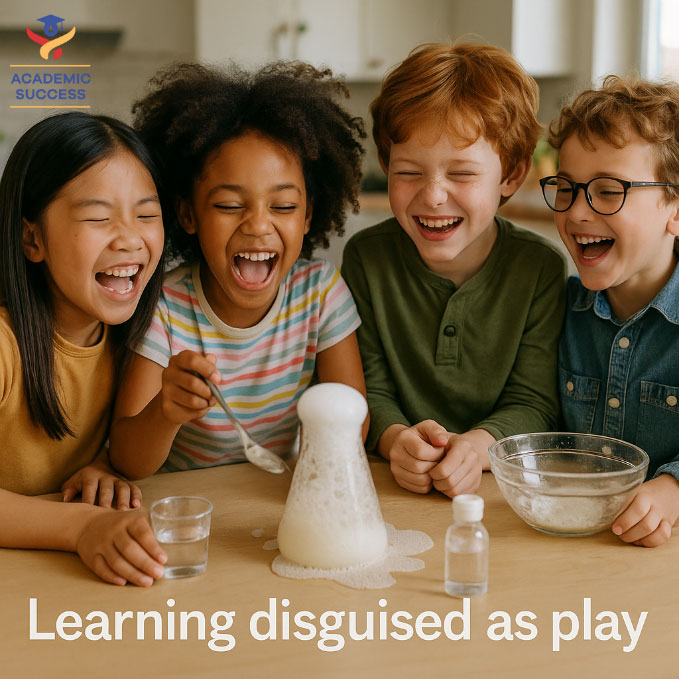
The most successful entrance exam candidates aren’t those who spend their summers buried in worksheets or textbooks. They’re the children whose parents have mastered the art of disguised learning, activities so engaging that children forget they’re developing crucial academic skills.
After 20+ years of helping UK families achieve entrance exam success, we’ve discovered that the most effective holiday learning at home happens when children are:
- Having genuine fun
- Solving real problems
- Creating something meaningful
- Sharing experiences with others
- Moving their bodies while thinking
The magic happens when learning feels like play, not homework.
Why Traditional Holiday “Homework” Fails
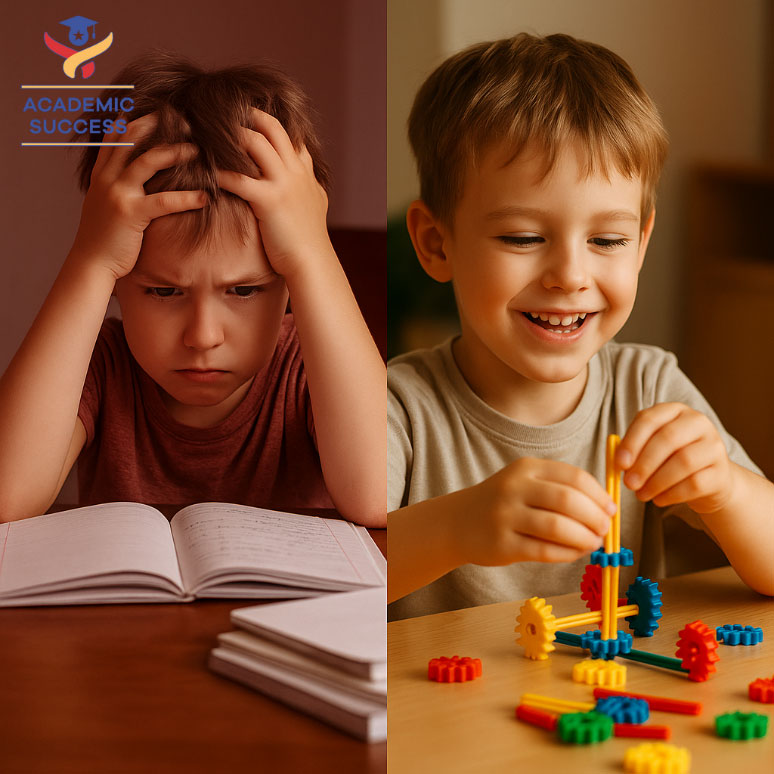
Before we dive into what works, let’s acknowledge what doesn’t. Traditional approaches often backfire because they:
- Create negative associations: Forcing reluctant children through workbooks breeds resentment toward learning
- Lack context: Abstract exercises feel pointless when children could be having “real” fun
- Ignore natural learning styles: Not every child learns best through written exercises
- Generate family conflict: Battles over holiday homework damage parent-child relationships
- Miss engagement opportunities: Children are naturally curious – we just need to channel it properly
The Academic Success Approach: Learning Through Living
At Academic Success Summer School, we’ve identified the most powerful holiday activities that boost entrance exam skills while feeling like genuine fun. These aren’t just activities – they’re strategic skill-builders designed around how children naturally learn.
Essential Skills-Building Activities for Every Family
1. Cooking Adventures: Maths in the Kitchen
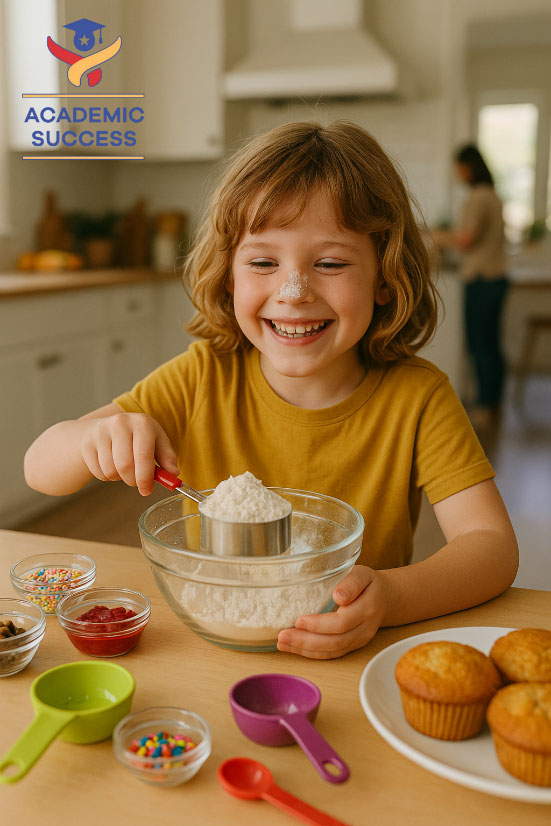
Entrance Exam Skills Developed:
- Mental arithmetic and fractions
- Problem-solving and logical thinking
- Following complex instructions
- Time management and sequencing
What to Do: Start with simple recipes and gradually increase complexity. Baking is particularly powerful because it demands precision and mathematical thinking.
Week 1: Simple biscuits (measuring, timing, basic fractions) Week 2: Pizza making (ratios, scaling recipes, geometry through toppings) Week 3: Cake decoration (symmetry, patterns, spatial reasoning)
Entrance Exam Connection: Children who regularly cook show improved performance in mathematical reasoning and problem-solving sections. They understand real-world application of abstract concepts.
Parent Tip: Let children make mistakes and solve problems independently. When the cake doesn’t rise properly, ask “What do you think went wrong?” rather than providing immediate answers.
2. Detective Games: Reading Comprehension in Action

Entrance Exam Skills Developed:
- Close reading and attention to detail
- Making inferences and deductions
- Vocabulary expansion
- Critical thinking
What to Do: Create treasure hunts with written clues that require careful reading and logical thinking.
Level 1 (Ages 4-6): Picture clues with simple written instructions Level 2 (Ages 7-9): Multi-step written clues requiring inference Level 3 (Ages 10+): Complex mysteries with red herrings and advanced vocabulary
Real Example: “Find the object that’s mentioned in yesterday’s newspaper article about the local park opening. It’s something children use, but not something you’d find in a classroom.” (Answer: playground swing mentioned in local news)
Entrance Exam Connection: Children develop the close reading skills essential for comprehension passages while building stamina for sustained concentration.
3. Travel Planning: Geography Meets Mathematics

Entrance Exam Skills Developed:
- Research and information processing
- Mathematical calculation and estimation
- Map reading and spatial awareness
- Comparative analysis
What to Do: Even if you’re not travelling far, involve children in planning family outings or imaginary trips.
Research Phase: Find information about destinations, costs, travel times
Mathematical Phase: Calculate distances, costs, time requirements
Problem-Solving Phase: Plan itineraries within budget and time constraints
Presentation Phase: Create family presentations about chosen destinations
Entrance Exam Connection: This mirrors the multi-step reasoning problems common in 11+ exams, where children must gather information, make calculations, and present logical conclusions.
4. Garden Science: Observation and Hypothesis Testing
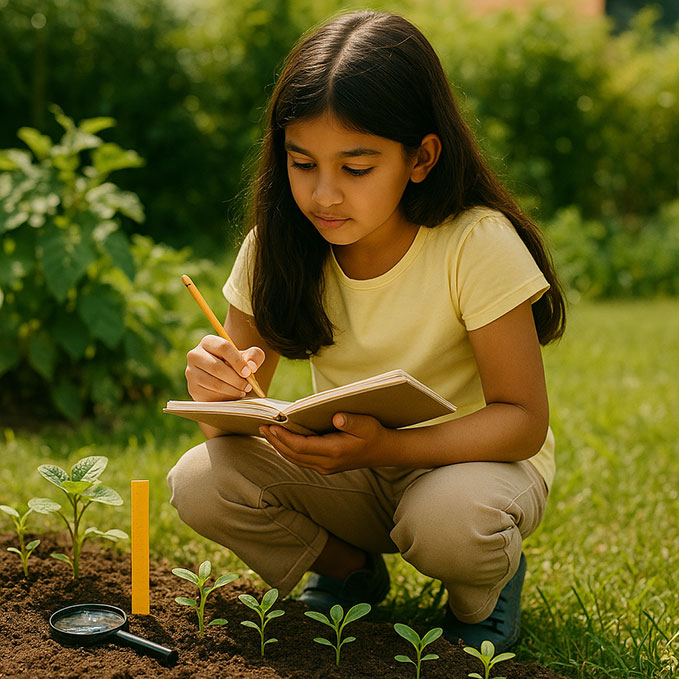
Entrance Exam Skills Developed:
- Scientific method and logical reasoning
- Observation and recording skills
- Vocabulary expansion (scientific terms)
- Pattern recognition
What to Do: Transform your garden (or windowsill) into a learning laboratory.
Week 1: Plant different seeds and predict growth rates Week 2: Test variables (water, light, soil type) systematically Week 3: Record observations and draw conclusions Week 4: Present findings with charts and explanations
Non-Verbal Reasoning Boost: Garden patterns, plant structures, and growth sequences directly support the visual reasoning skills tested in entrance exams.
5. Story Creation Chains: Creative Writing Skills

Entrance Exam Skills Developed:
- Creative writing and narrative structure
- Vocabulary expansion and precise word choice
- Collaborative communication
- Editing and improvement skills
What to Do: Create family or friend group stories where each person contributes one paragraph before passing to the next person.
Advanced Version: Give specific requirements (must include three adjectives, one question, a character emotion) to develop technical writing skills.
Entrance Exam Connection: Many independent schools test creative writing. Children who regularly engage in storytelling show enhanced ability to structure narratives and use varied vocabulary.
Age-Specific Activity Progressions
Ages 4-6: Foundation Skills Through Play
Morning Activity (20 minutes): Shape hunts around the house, counting games during walks
Afternoon Activity (15 minutes): Simple cooking measurements, story picture books Focus: Basic numeracy, phonics recognition, following instructions
Ages 7-9: Skill Integration
Morning Activity (30 minutes): Strategy board games, reading comprehension through comics
Afternoon Activity (25 minutes): Garden experiments, creative writing journals Focus: Mathematical reasoning, reading inference, independent thinking
Ages 10+: Entrance Exam Preparation
Morning Activity (45 minutes): Complex puzzles, newspaper analysis and discussion
Afternoon Activity (35 minutes): Independent research projects, peer teaching activities Focus: Advanced reasoning, analytical thinking, communication skills
The Power of Social Learning During Holidays
Why Group Activities Multiply Benefits:
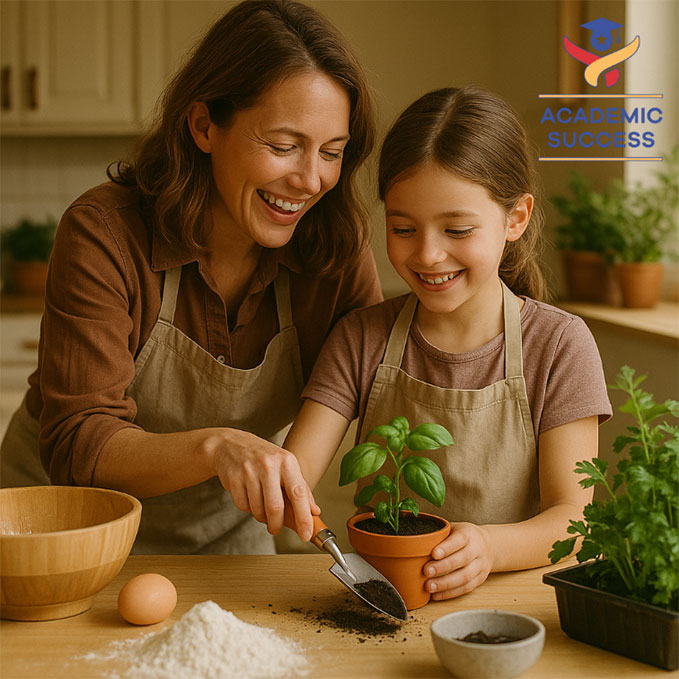
Children learn faster and retain more when they can share discoveries with peers. Organize learning playdates where children tackle challenges together:
Collaborative Cooking: Teams compete to create the best recipe modifications
Detective Partnerships: Pairs solve mysteries and compare solution strategies
Science Experiments: Groups test different hypotheses and share results
Story Collaborations: Creative writing becomes social and inspiring
Academic Success Summer School Advantage: Our programmes naturally incorporate this social element, turning individual skill development into collaborative discovery.
Weekly Planning: The Academic Success Framework
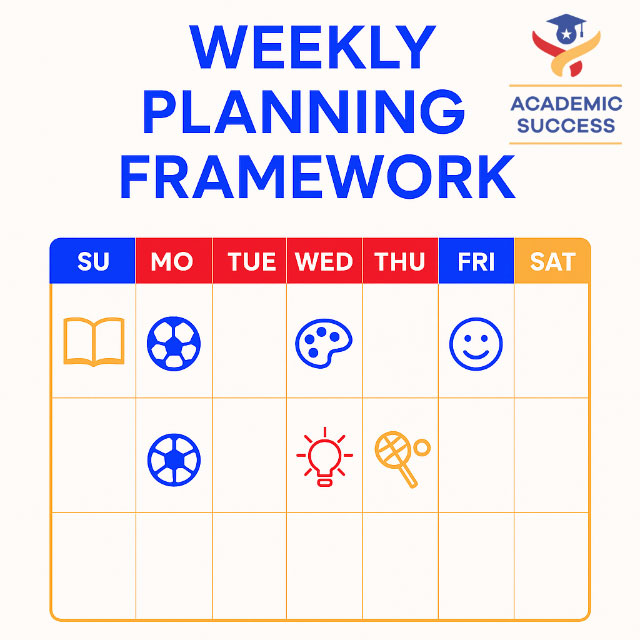
Week 1: Foundation Building
- Monday/Wednesday/Friday: Structured activities (cooking, detective games)
- Tuesday/Thursday: Free exploration with optional challenges
- Weekend: Family projects incorporating multiple skills
Week 2: Skill Integration
- Daily Mix: Combine different activity types
- Peer Interaction: Arrange learning playdates
- Progress Review: Celebrate discoveries and improvements
Week 3: Challenge Acceleration
- Independent Projects: Children choose and lead activities
- Teaching Others: Children explain concepts to family members
- Real-World Application: Use skills in genuine situations
Week 4: Consolidation
- Showcase Learning: Children present their holiday discoveries
- Reflect and Plan: Discuss what worked best
- September Preparation: Bridge holiday learning to school return
Making It Sustainable: Tips for Busy UK Families
Start Small: 15-20 minutes daily is better than ambitious plans that fail
Use What You Have: Most activities require common household items
Involve Siblings: Multi-age activities benefit everyone
Document Progress: Photos and simple records maintain motivation
Celebrate Success: Acknowledge effort and improvement, not just achievement
For Working Parents: Weekend intensive sessions plus quick daily activities work better than daily long commitments.
The Entrance Exam Advantage: Why This Approach Works
Children who engage in varied, challenging, real-world learning during holidays consistently outperform peers who either don’t engage academically or rely solely on abstract practice papers.
Specific Entrance Exam Benefits:
- Increased confidence when facing unfamiliar question types
- Better problem-solving stamina developed through extended activities
- Richer vocabulary acquired through diverse experiences
- Stronger logical reasoning built through real-world applications
- Enhanced creativity essential for open-ended exam questions
What Parents Tell Us About Holiday Learning Success
“I was amazed how engaged Sophie became with maths when we started cooking together. She’s now asking for more challenging recipes!” – Sarah M., Stanmore
“The detective games completely changed how James approaches reading. He reads everything now, looking for clues and hidden meanings.” – David T., Finchley
“Our garden experiments led to the most interesting family conversations we’ve ever had. Learning became something we all looked forward to.” – Lisa R., Northwood
Beyond Individual Activities: The Academic Success Difference
While these activities provide excellent foundation support, they work even better when combined with structured peer learning opportunities. At Academic Success Summer School, we integrate these natural learning approaches with:
- Expert Teaching: Qualified educators who know how to maximize each activity’s learning potential
- Peer Collaboration: Small groups where children inspire and challenge each other
- Systematic Progression: Carefully sequenced skill development that builds throughout the summer
- Assessment and Feedback: Regular progress monitoring that keeps children motivated and parents informed
Your Holiday Learning Action Plan
- This Week: Choose 2-3 activities that match your child’s interests and your family schedule
- Next Week: Involve friends or family members to add social learning elements
- Ongoing: Document successes and adapt activities based on what engages your child most
- September: Continue successful activities during term time to maintain momentum
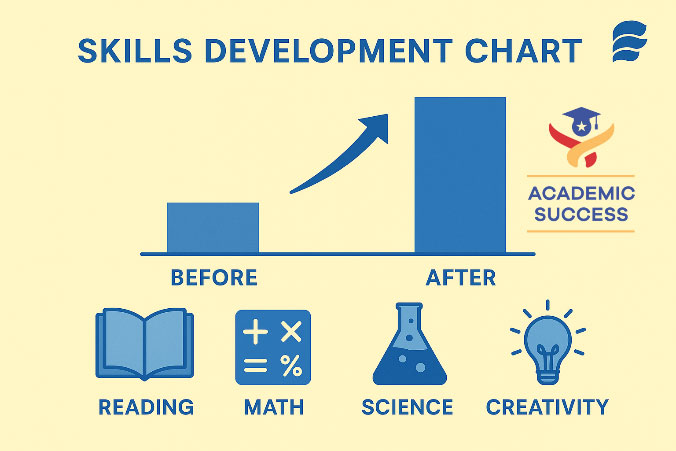
The Choice Is Yours
Every summer day represents an opportunity for growth or a step toward the dreaded “summer slide.” The activities outlined here prove that learning and fun aren’t mutually exclusive – they’re natural partners when approached correctly.
Your child can return to school in September more capable, confident, and curious than when they left in July. The question is whether you’ll seize this opportunity or let it slip away.
Ready to transform your child’s summer into a launching pad for entrance exam success?
Academic Success Summer School takes the guesswork out of holiday learning. Our expert teachers blend fun activities with systematic skill development, ensuring your child enjoys their break while building the capabilities needed for entrance exam success.
Small groups • Expert teachers • Proven results • Happy, confident learners
Transform Summer Into Success
Holiday Learning Checklist:
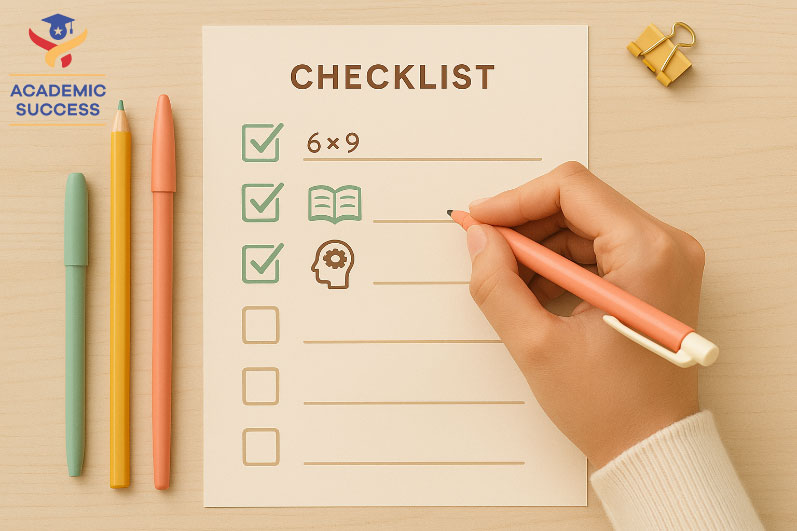
- Daily learning activities disguised as fun
- Social learning opportunities with peers
- Real-world skill application beyond worksheets
- Progress celebration to maintain motivation
- September preparation for confident school return
From kitchen experiments to garden discoveries, make this summer your child’s academic breakthrough.

I started Academic Success because I’ve seen first-hand the transformation that happens when a child feels truly supported. I’ve helped hundreds of children grow in confidence, master tricky concepts, and discover their love for learning. I’d love to help your child too. Together, we can make a real difference.
Tag:Academic Success Tips for Parents, Boost Learning Over Summer, Building Confidence in Learning, Early Years Learning Ideas, KS1 and KS2 Learning Activities, Parent Tips for Summer Learning, Phonics and Literacy Summer Activities, Preparing for Grammar School Exams, Summer Holiday Learning, Summer Holiday Learning for Entrance Exams, Summer Maths and English Activities, Summer Revision Tips for 11+ Exams, Summer Study Tips for Primary Kids



